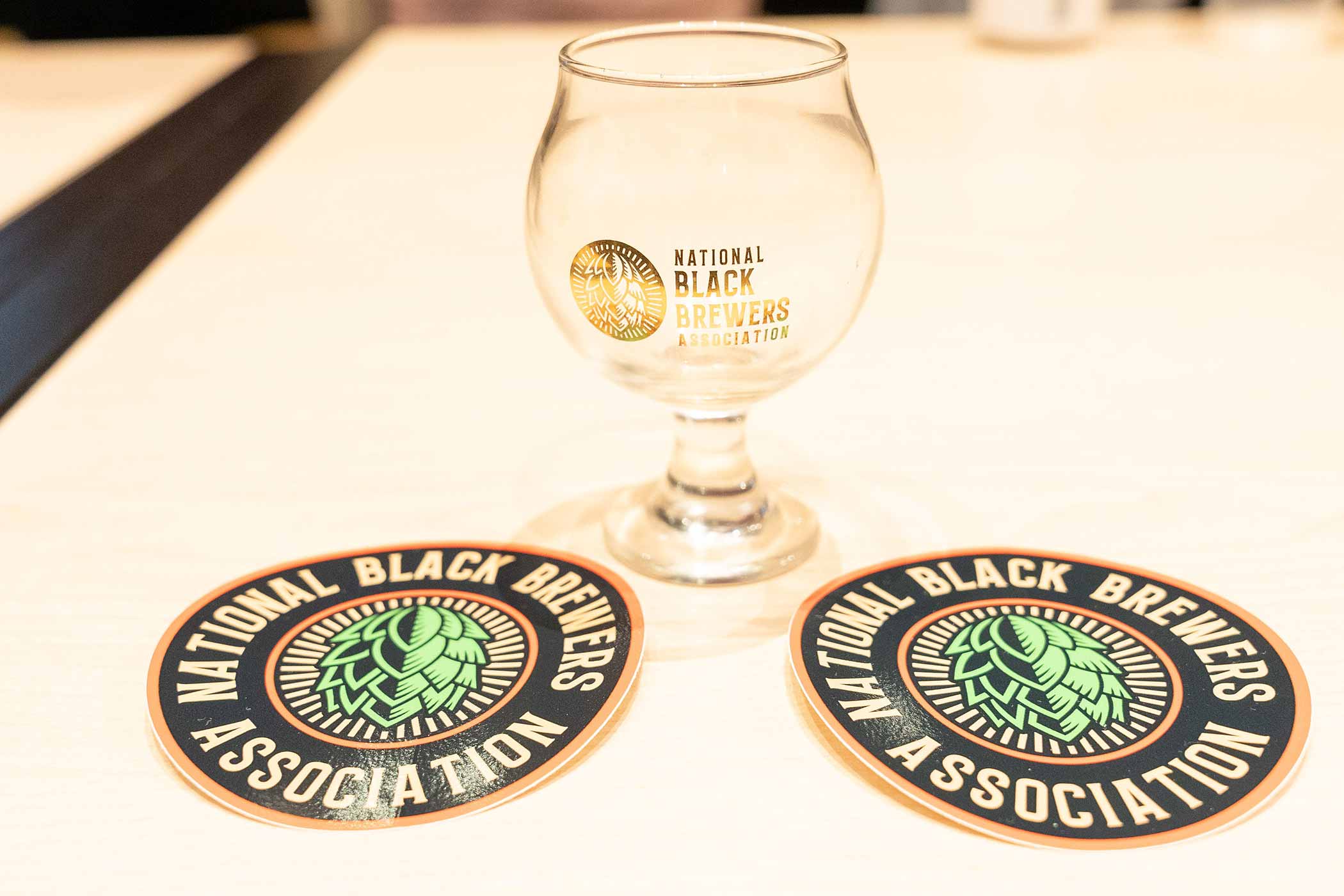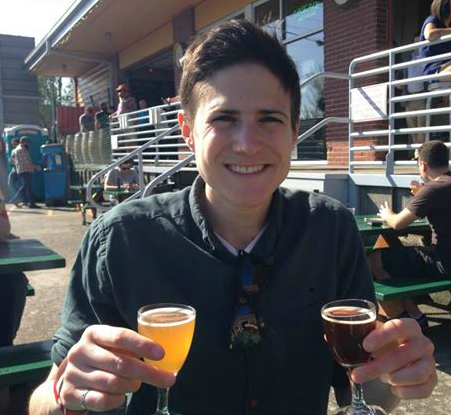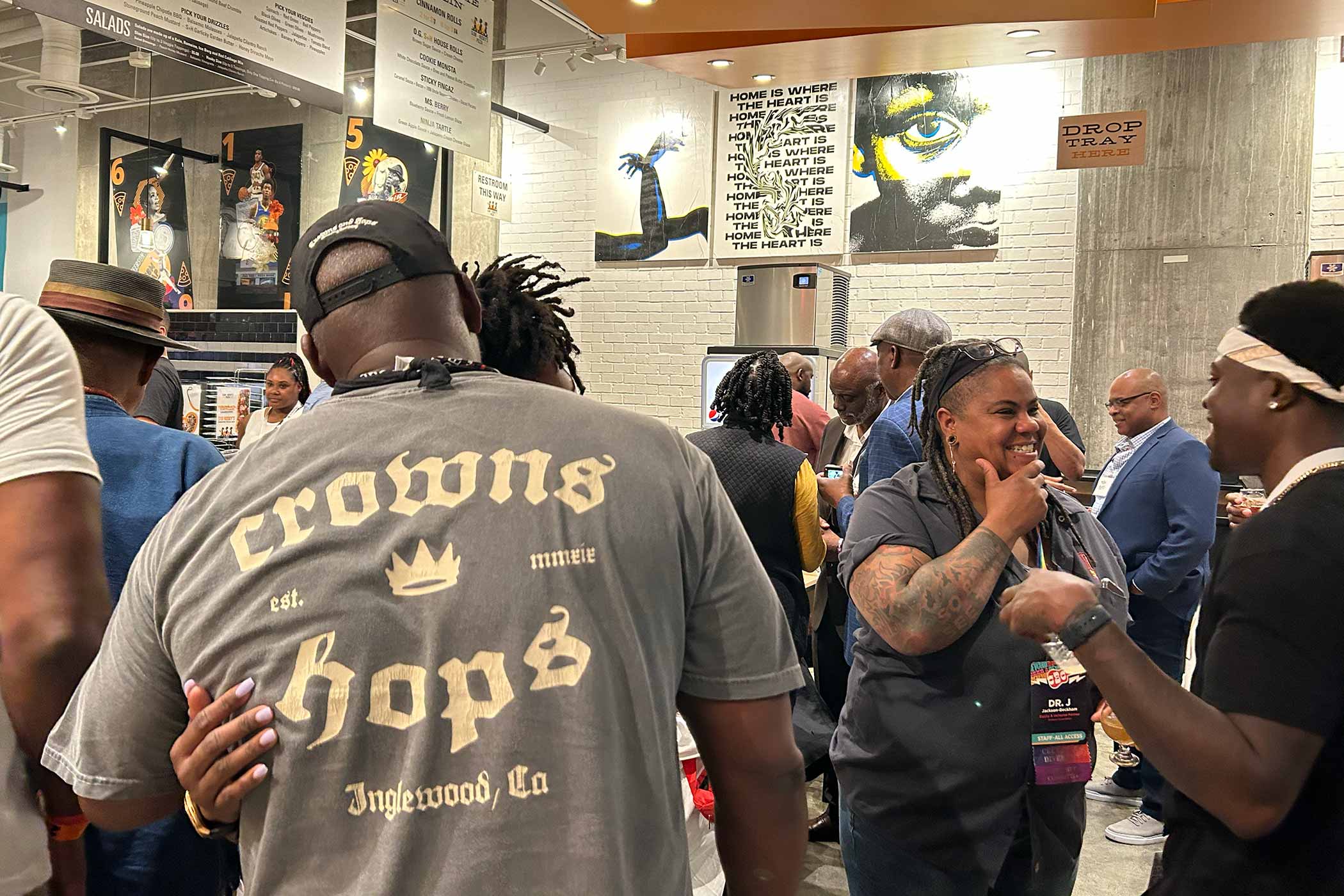Shop
New Program Donates Equipment to Black and Brown Brewers
Giving new life to seasoned equipment.
Looking for More?
Equipment and capital are the two highest barriers to entry in the craft beer industry, especially for underrepresented communities. To help Brewers of Color overcome these hurdles, the National Black Brewers Association (NB2A) has introduced the 2024 Brewing Equipment Donation Grant Program.
The initiative aims to connect Black and Brown brewers with seasoned, often expensive equipment donated from breweries who no longer need it.
Last year, the nation’s premier and only organization promoting the growth of Brewers of Color informally facilitated an equipment donation from Triumph Brewing. The machinery helped Harlem Brewing Founder Celeste Beatty open Harlem Brew South in Rocky Mount, NC.
Building off the success of this organic initiative, the NB2A decided to adopt the new donation program formally.
This year, Cajun Fire Brewing in New Orleans will receive a twenty-barrel brewhouse generously donated by Russian River Brewing Company, and Montclair Brewery in New Jersey will take over a packaging line supplied by the now-closed Optimism Brewing in Seattle, WA.
As a press release from the NB2A states, this is more than just an equipment donation; “this is a powerful reminder of the collective strength within the brewing community to lift each other up and create lasting change.”
What Is the NB2A and What Is the Goal of This Program?
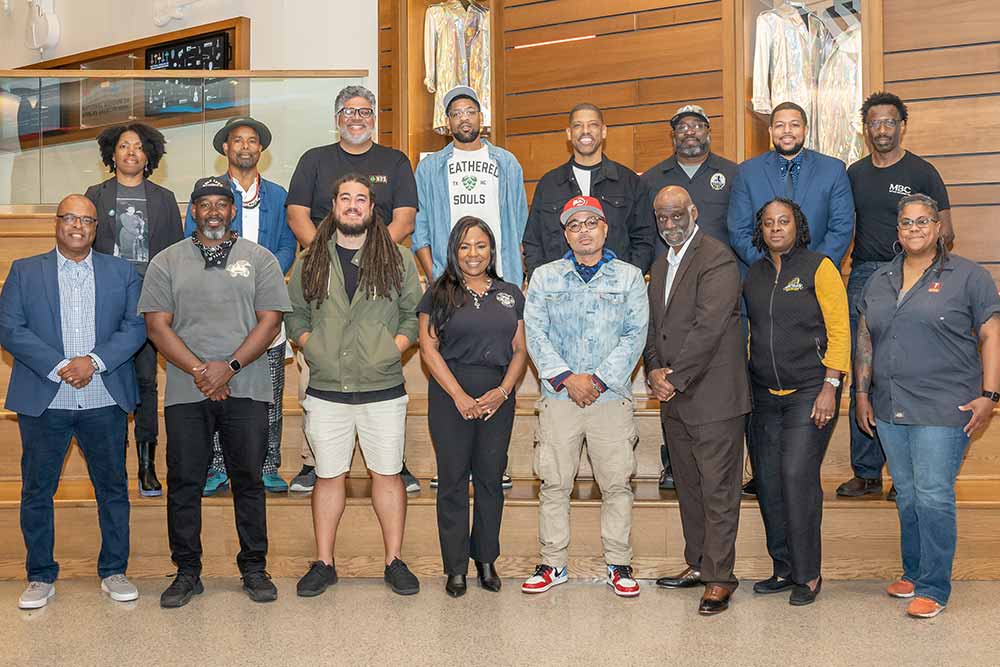
Photography courtesy of National Black Brewers Association
Founded to address systemic barriers in the industry, the NB2A strives for four things (per the membership’s website):
1. Promote the Black brewing community as a first-of-its-kind organization.
2. Increase the number of African Americans in the brewing industry at all levels of production, especially ownership and brewmaster.
3. Exercise political influence by developing and advocating for effective policy.
4. Foster an understanding of the history and legacy of African Americans brewing in the United States.
The Equipment Donation Grant Program is just one of the association’s responses to breaking these barriers.
After all, equipment isn’t cheap.
“You need capital to purchase half a million to a million dollars worth of hardware and steel,” says NB2A Executive Director Kevin Asato. “The equipment becomes so significant. … It is the primary reason for capital, right?”
By giving equipment a second life, the initiative allows Black- and Brown-owned breweries to grow.
Organic Origin, Foundational Future
Last year, Triumph Brewing elected to offer the iconic Black-owned Harlem Brewing a brewhouse it no longer needed.
The donation helped Harlem Brewing open a new location in North Carolina.
Seeing the benefits of an equipment donation firsthand, Asato and the NB2A wanted to establish a formal program.
According to Asato, the contribution highlighted a critical issue. “Most Black breweries in the country are forced to operate under a contract brewing model, where another brewery uses their recipes to create their beers,” said Asato in a press release. “This is often due to the systemic challenges Black entrepreneurs face in accessing the capital needed to invest in their own equipment and facilities.”
In 2024, ten breweries officially applied as potential recipients. A dedicated task force reviewed all applications and selected beneficiaries based on criteria identifying which breweries needed this life-changing equipment the most.
“I’m seeing a common thread that, wow, there is a decent amount of equipment out there, and people generally just want to find a way to connect a very useful asset to a very needed audience,” says Asato. “It’s been serendipitous; it’s been organic.”
Cajun Fire to Receive Russian River’s Twenty-Barrel Brewhouse
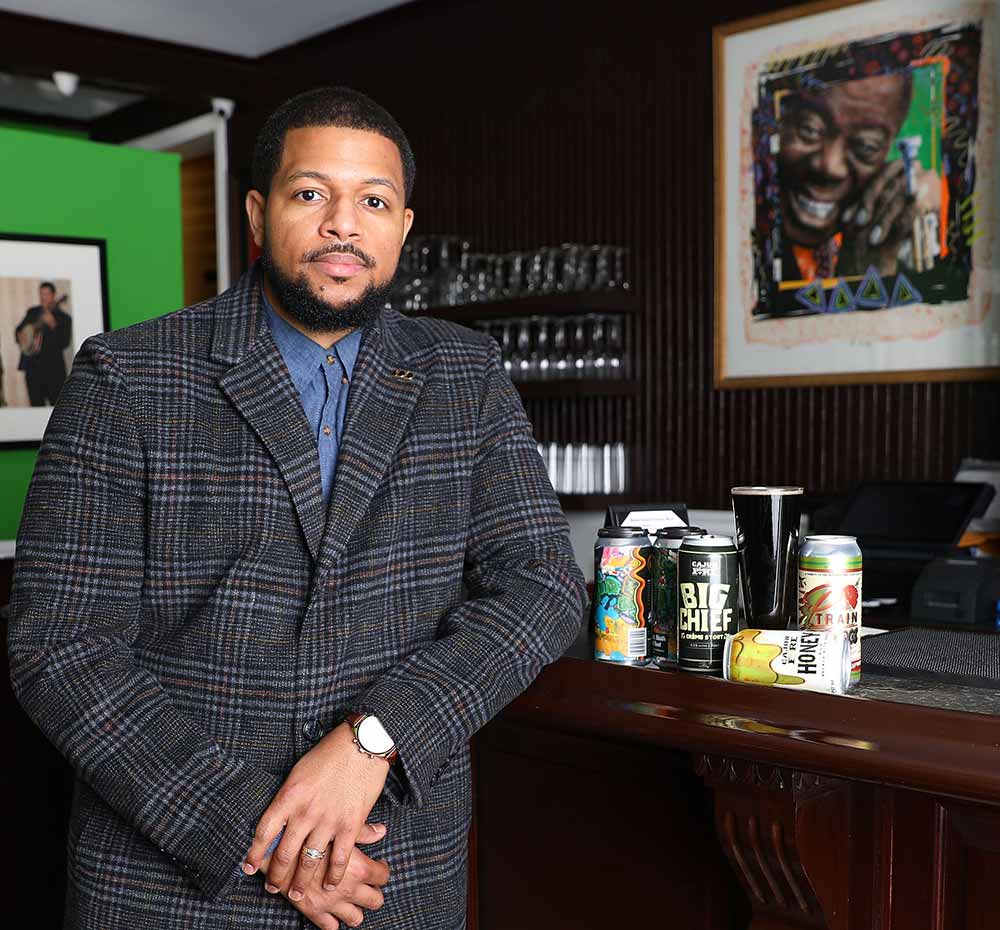
When Asato broadcasted Triumph’s donation to the public, he wasn’t sure what to expect.
He definitely didn’t think that some of the country’s best brewers, such as Russian River Brewing Company Co-Founders Vinnie and Natalie Cilurzo, would raise their hand to participate.
As Natalie explains, an article Vinnie read about Triumph’s donation inspired the brewery to do something similar.
“For our needs, we’re ready to move on,” explains Natalie. “But [the brewhouse] is perfect for a start-up or small brewery looking to take it to the next level. We figured it still had more life, so we didn’t want to scrap or sell it. [We thought it would] be nice to pay it forward and help another brewery because we’ve had a lot of help along the way.”
The brewhouse, which has a twenty-year history of making iconic beer like Pliny the Elder and Pliny the Younger, will now be managed by Cajun Brewing CEO and Brewmaster Jon L. Renthrope.
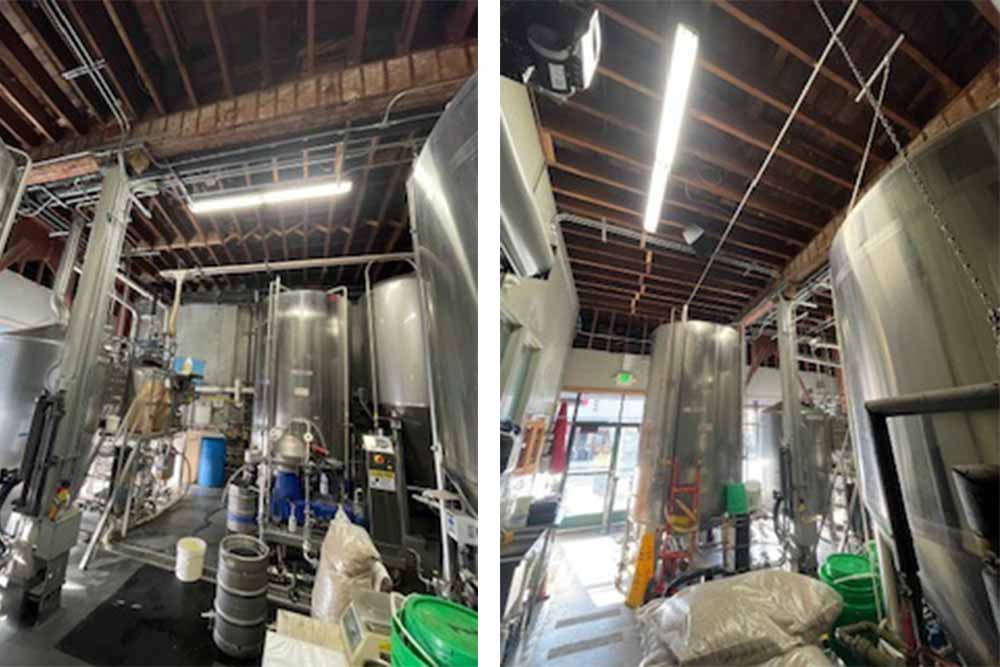
And he has big plans for carrying on its legacy.
Renthrope has spent years building his business and searching for a brick-and-mortar location.
A serial entrepreneur who started selling CDs in high school in the early 2000s, Renthrope discovered homebrewing in college at the University of Florida. Apprenticing at NOLA Brewing under former president and CEO Kirk Coco, Renthrope eventually set out on his own, entering competitions and showcasing at beer festivals.
Starting Cajun Fire in 2011, Renthrope once told me he “got too far from the lighthouse financially to swim back.”
But for the first Black-owned beer company in the Southern U.S., Renthrope, also Native American, says finding a place in this space has been the biggest challenge.
Despite raising over $900,000 for his community through Cajun Fire, Renthrope says not one bank agreed to give him a loan. He has paid for everything out-of-pocket. “A lot of disparities still exist in those institutions,” he says, noting these are the types of straight-up systemic hurdles he experienced as a Black brewery owner. “Just being anything that ain’t heterosexual, white, or male, anything of ownership, even like women of any creed [or] color, you got your cards stacked … you’re not really accepted at face value and … you got to jump through all kinds of hoops and hurdles.”
Eventually, Renthrope purchased a fourteen-acre commercial development in East New Orleans off I-10, planning to open a cultural hub with a museum preserving local art and culture, a ghost kitchen available to underrepresented food business owners, and a Cajun Fire taproom as the anchor.
“We’re building one of the largest food and beverage tourist attractions in Louisiana,” says Renthrope. “But it’s been a hell of a ride.”
Several years later, Renthrope still hasn’t broken ground. In the meantime, we previously reported how people vandalized the property, stole fencing, and destroyed signs. (Renthrope says he eventually stopped buying new ones because they cost him $600-$800 each time.)
“I’m a market disruptor,” says Renthrope, who seemed to shrug all these incidents off as just par for the course.
Despite all the challenges, Renthrope remains optimistic, mentioning how important this equipment donation will be for his business.
“The impact this is going to have on my general livelihood, as well as my family and my staff, should not be understated,” says Renthrope in his soothing Southern drawl. “That this is the [system] that made Pliny the Elder, that’s the cherry on top.”
Renthrope, who hopes to open his cultural hub by the end of 2025 or early 2026, plans to use the old Russian River brewhouse to make some of Cajun Fire’s premier beers. Although he isn’t set on exactly what yet.
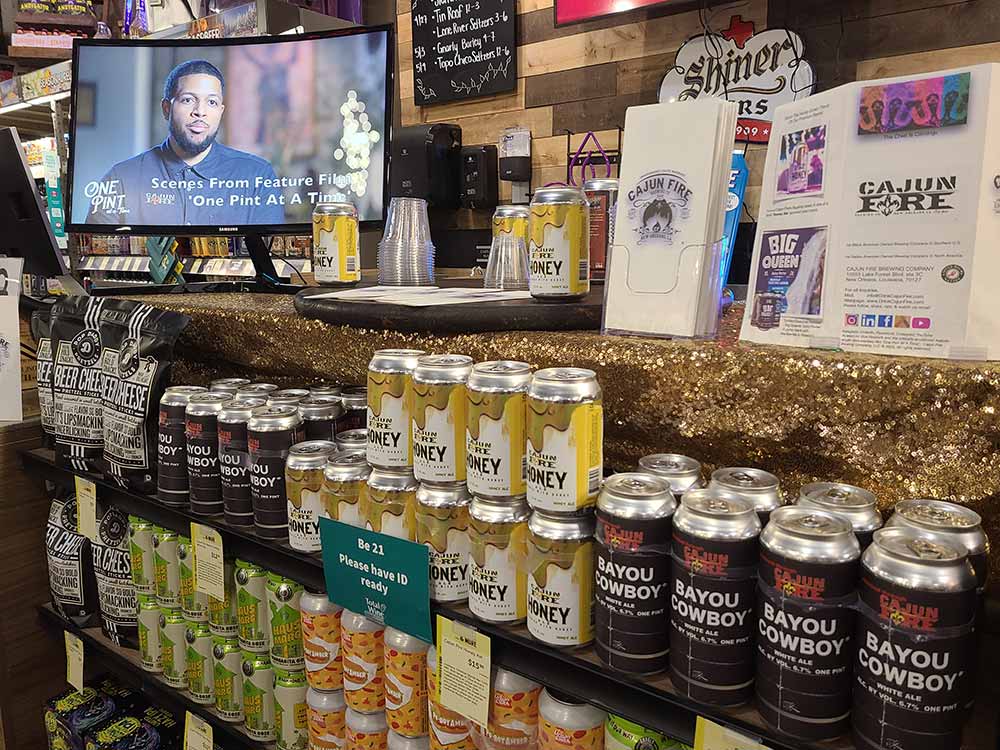
Each beer the family-owned and operated brewery makes represents Renthrope’s Cajun Creole home, the United Houma Nation, and African diaspora roots. So, the brewhouse will once again have another chance to pass on another legacy.
“There is a lot of history in that machine,” says Renthrope, excited to infuse his heritage into it.
“He’s getting equipment with a proven track record of making fantastic beers,” says Natalie. “He should feel confident that he can make really good beer on this equipment.”
Beyond the apparatus itself, though, Renthrope sees additional benefits.
“Vinnie and Natalie have thirty-plus years of institutional knowledge,” he explains. “That’s conversations you can’t put a price tag on … that can’t be quantified.”
Natalie says she and Vinnie are more than happy to talk to Renthrope about his business strategy, recipes, etc.
“We’re finally in a position in our careers where people do look up to us for brewing and business advice,” she says. “We’re just excited to connect with someone new and hopefully give back and help foster the next generation of brewers to make excellent beer.”
As a first step, Natalie says the pair plans to travel to New Orleans to help Renthrope install the machinery and brew a collab.
“It’s hard for me to articulate it. It’s everything right now,” says Renthrope. “Any support is welcome, but when it’s support that is deliberate and intentional, you can’t put a price tag on that. I can only be appreciative of the gratitude and also hope that more and more partners follow suit.”
Montclair Brewery Becomes the New Owner of Optimism Brewing’s Canning Line
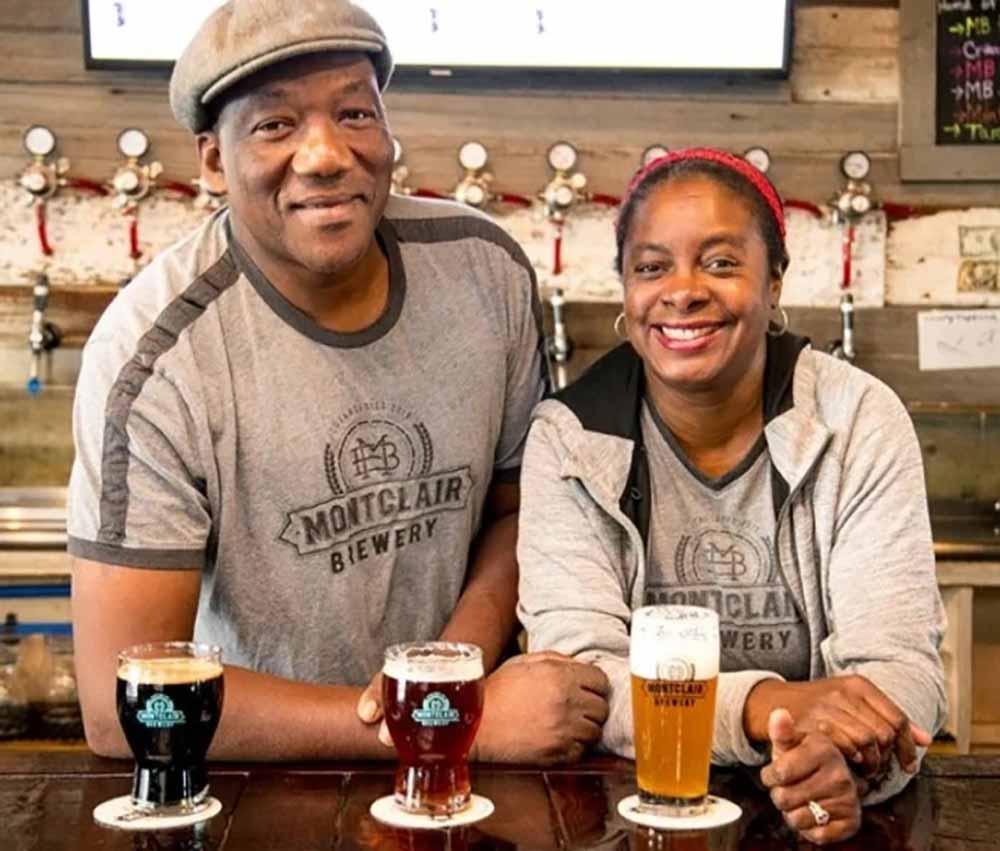
Photography courtesy of Montclair Brewery
Before applying for the NB2A’s Equipment Donation Grant Program, Montclair Co-Founder Dennise Ford-Sawadogo says the brewery didn’t have many options.
Maxed out at their current 1,000-square-foot facility with very little space, Montclair’s current table-top canning line forced them to close the brewery whenever they wanted to package. “Right now, we can’t can in the presence of customers because we have to take up the entire space with boxes and boxes of cans to run the canning line,” explains Montclair Co-Founder Leo Sawadogo.
“It’s really difficult,” adds Denise. “It’s really tight moving in and out.”
Unable to keep up with the demand for its cans, Montclair had to pass on certain distribution accounts.
Recently, the pair acquired a second location, where they’ll permanently set up Optimism’s donated canning line.
Editor’s Note: Montclair is currently fundraising for their second location. Consider donating here!
“The new place and canning line will allow us to grow,” says Denise. “We’re planning on doubling or tripling our production.”
Without the NB2A’s equipment donation program, Denise isn’t sure what the six-year-old New Jersey-based brewery would have done.
“When we got the email saying we won, I was super excited and very relieved,” she admits. “It’s great that people like Optimism Brewing, who no longer need equipment, and the NB2A, who has access to people who may need it, [are giving] that extra help to boost businesses; putting the two together is wonderful.”
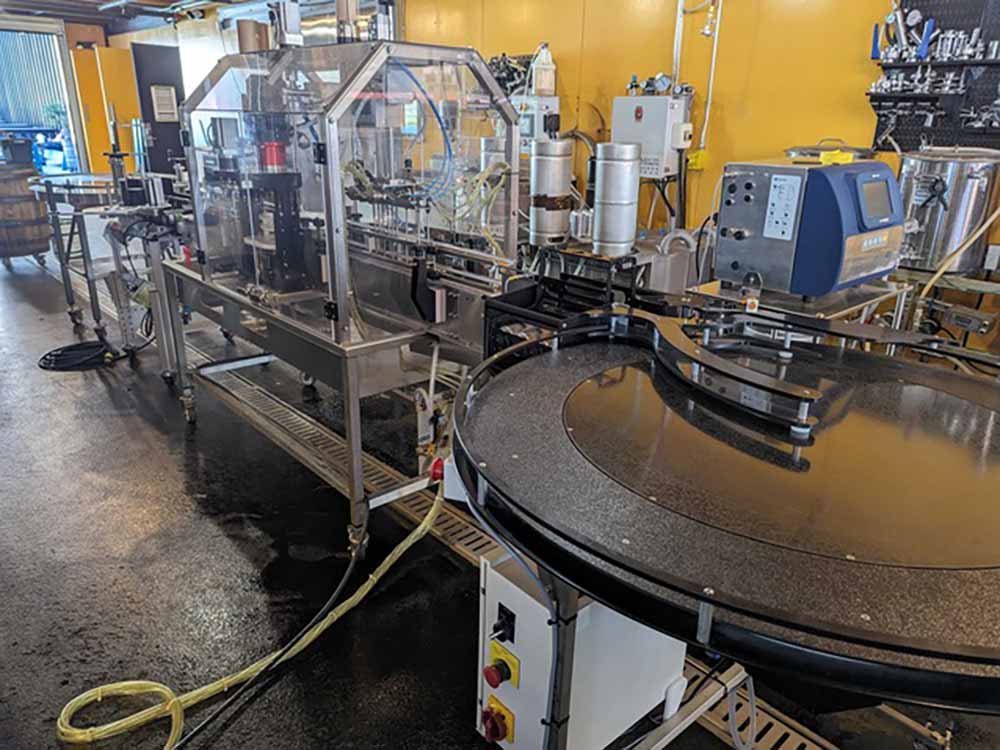
When Optimism Brewing Co-Founder Gay Gilmore found out about Russian River’s donation at the Craft Brewers Conference last May, she thought, “Oh my gosh, this is fantastic because we’ve wanted to get our canning machine in the hands of a BIPOC brewery.”
Last year, Optimism Brewing closed its doors after a very successful eight-year run as the largest taproom in Seattle.
But Gilmore and her life and business partner didn’t want to run a brewery anymore. They tapped their friends at Stoup Brewing to take over the location, but since Stoup already had a canning line, they pondered what to do with dormant machinery.
The canning line comes complete with a label machine, label printer, and date coder, making it perfect for a start-up brewery.
“We decided the best thing to do as an exciting business was to get it in the hands of someone who could take it to the next level,” says Gilmore.
With all the bells and whistles, Optimism’s canning line tops the $200K mark—no small investment for any business owner.
“The equipment [cost] to start brewing is a HUGE chunk, that’s a very expensive piece,” explains Gilmore. “For Montclair or any brewery ready to jump into canning or another location, getting that [equipment] is a huge leg up.”
Even though Optimism no longer exists, Gilmore feels…optimistic about giving the canning machine a second life.
“When I look at that equipment, I see all the hard work of the years we and our brewers put in making great beer,” says Gilmore. “But I also have to acknowledge that I see generations of privilege that put my husband and I in a place to do what we did.”
Without facing the same discrimination as Black and Brown brewery owners, Gilmore says, “We have generations of privilege that came before we ever started to open a brewery, so I know that is embodied in that stainless steel as well, and the only way we can start dismantling that and making reparations is by radical change.”
Gilmore acknowledges that this one donation isn’t enough, but she hopes to set an example.
“The message I want to convey to others,” says Gilmore, “is ‘Hey, join me. … This is a wonderful thing to do.’”
Beer Is Community, So Let’s Act Like a Community
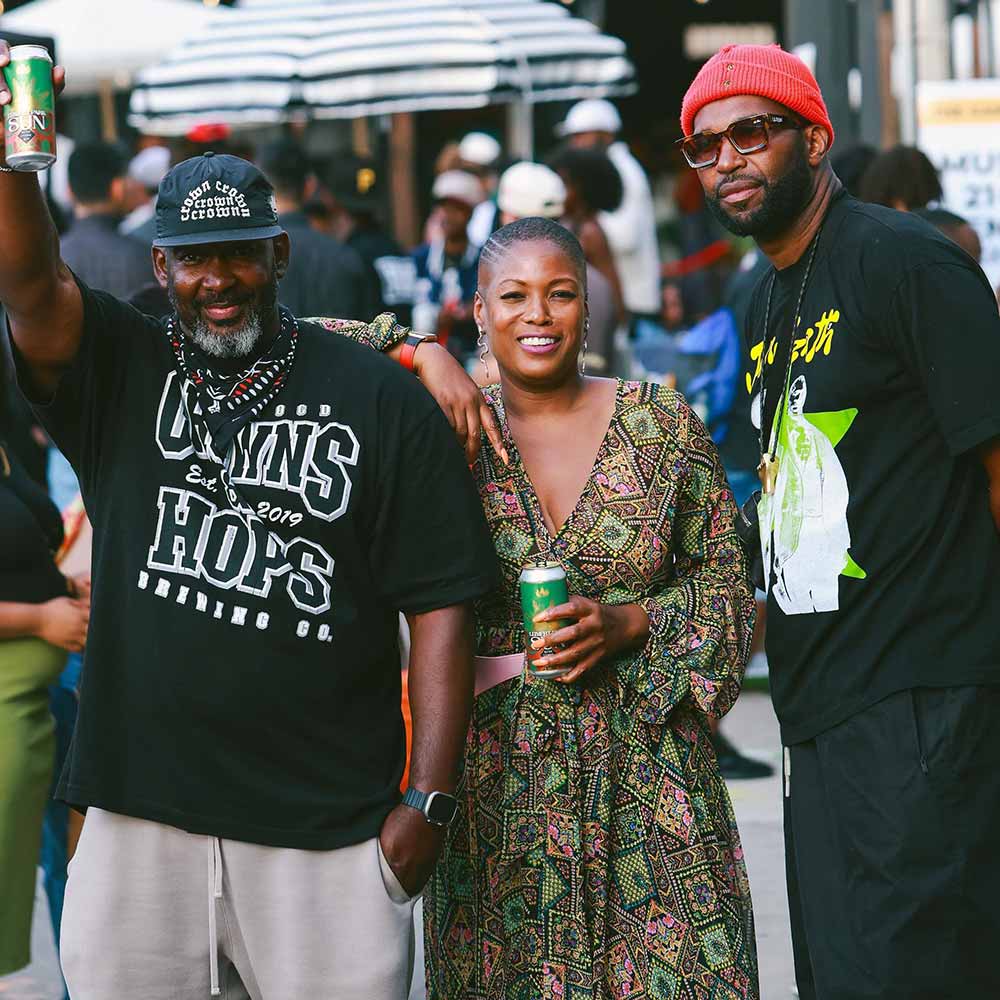
Photography courtesy of @crownsandhops
Asato sees the NB2A’s Equipment Grant Donation Program as an untold story with potentially exponential ramifications.
“I’m extremely eager to help broadcast the message on how impactful [this] can be for a Black-owned brewery,” Asato expressed in a happy hour with the North American Guild of Beer Writers.
For current Crowns & Hops Co-Founder Beny Ashburn, who is currently trying to open the brewery’s own brick-and-mortar, a program like this “literally puts a dent in an industry that needed it for centuries,” she said during that same happy hour because now places like Cajun Fire will “have a space to brew beer and invite thousands of multicultural drinkers into their establishment that never had a place to go before. Now, Montclair Brewing can put their products on shelves in spaces where representation did not exist on the East Coast.”
This isn’t just a piece of equipment; it’s a life-saving opportunity. One that will ultimately benefit everyone.
“Beer is community,” Natalie reminds me. “Hopefully, we can help some future brewers grow, be the next generation, and keep our industry strong.”
Although the liquid we drain from our glasses may seem ephemeral, the mark it leaves can establish someone’s legacy.
“Beer brings people together,” says Asato, “that very connected tissue beer promotes is alive and well.”
The NB2A’s new program hopes to keep that beating heart going.
Interested in donating a piece of equipment and giving it a new life? Please reach out to the NB2A directly ([email protected]).

